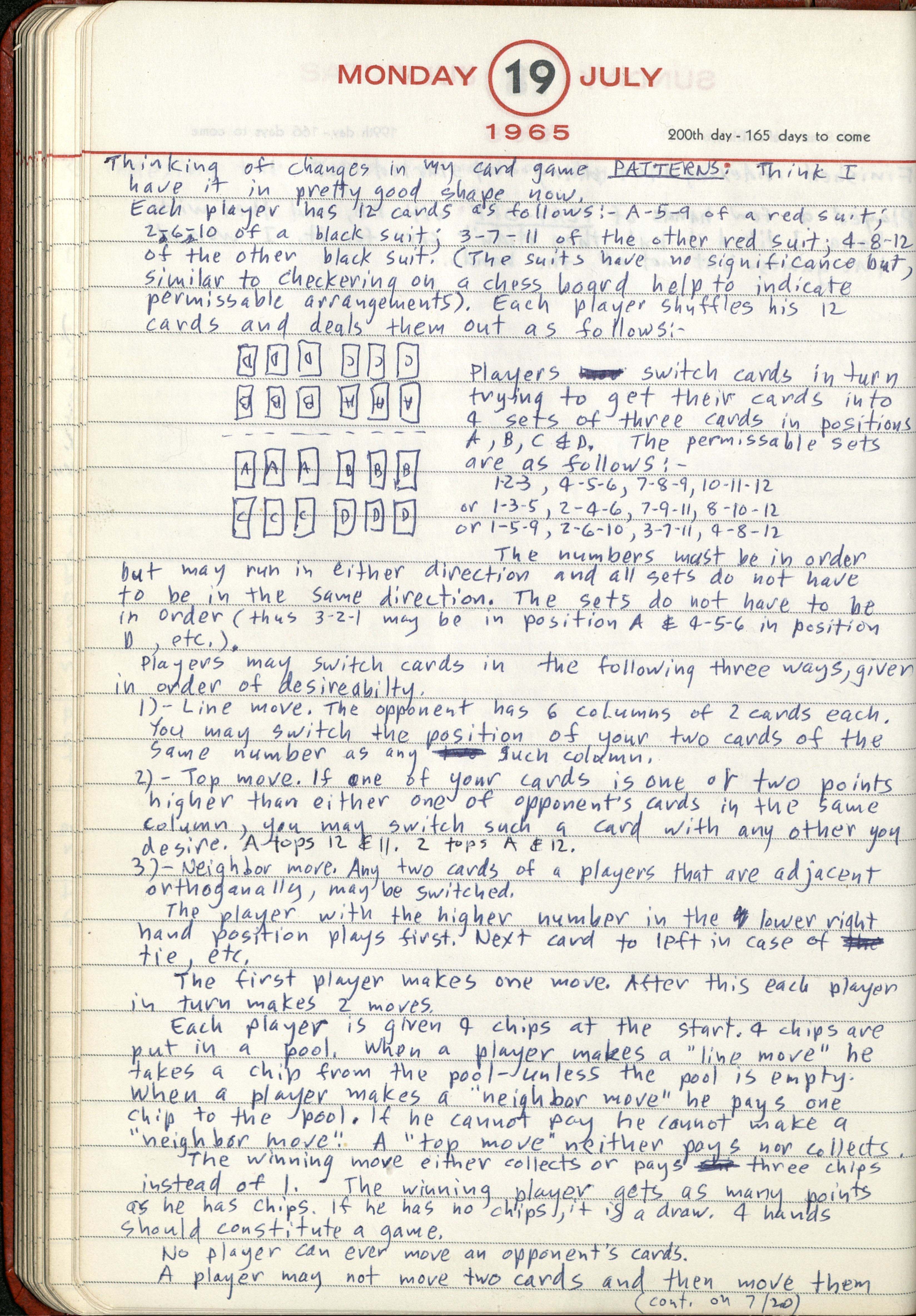1965_Sackson_220_July 19.jpg: Page #1
Original title: 1965_Sackson_220_July 19.jpg

Transcription
MONDAY 19 JULY 1965 200th day - 165 days to come
Thinking of changes in my card game PATTERNS. Think I have it in pretty good shape now. Each player has 12 cards as follows: - A-5-9 of a red suit; 2-6-10 of a black suit; 3-7-11 of the other red suit; 4-8-12 of the other black suit. (The suits have no significance but, similar to checkering on a chess board help to indicate permissable arrangements). Each player shuffles his 12 cards and deals them out as follows:-
[diagram of two sides, 12 cards on each, 4 each labeled A, B, C, D]
Players mov switch cards in turn
trying to get their cards into
4 sets of three cards in positions
A, B, C, & D. The permissable sets
are as follows:-
1-2-3, 4-5-6, 7-8-9, 10-11-12
or 1-3-5, 2-4-6, 7-9-11, 8-10-12
or 1-5-9, 2-6-10, 3-7-11, 4-8-12
The numbers must be in order
but may run in either direction and all sets do not have
to be in the same direction. The sets do not have to be
in order (thus 3-2-1 may be in a position A & 4-5-6 in position
B, etc.).
Players may switch cards in the following three ways, given
in order of desireability.
1) - Line move. The opponent has 6 columns of 2 cards each.
You may switch the position of your two cards of the
same number as any two such column.
2) - Top move. If one of your cards is one or two points
higher than either one of opponent's cards in the same
column, you may switch such a card with any other you
desire. A tops 12 & 11. 2 tops A & 12.
3) - Neighbor move. Any two cards of a players that are adjacent
orthagonally, may be switched.
The player with the higher number in the lower right
hand position plays first. Next card to the left in case of the
tie, etc.
The first player makes one move. After this each player
in turn makes 2 moves.
Each player is given 4 chips at the start. 4 chips are
put in a pool. When a player makes a "line move" he
takes a chip from the pool - unless the pool is empty.
When a player makes a "neighbor move" he pays one
chip to the pool. If he cannot pay he cannot make a
"neighbor move." A "top move" neither pays nor collects.
The winning move either collects or pays [crossed out] three chips
instead of 1. The winning player gets as many points
as he has chips. If he has no chips, it is a draw. 4 hands
should constitute a game.
No player can ever move an opponent's cards.
A player may not move two cards and then move them
(cont. on 7/20)